Diabetes is a health condition wherein there is an abnormal rise in the body’s blood sugar level. It is a chronic disease where the pancreas does not produce enough insulin.
If you happen to be a diabetic, you’re probably not going to be looking towards energy drinks in order to get your daily caffeine fix, especially considering there are plenty with an exorbitant amount of sugar.
But, contrary to popular belief, there are plenty of diabetic-friendly, sugar-free energy drinks out there that won’t spike your blood sugar levels which you can thoroughly enjoy, so long as you know where to look.
If you want to know more, then dive right in.
Contents
Facts Linked To Diabetes
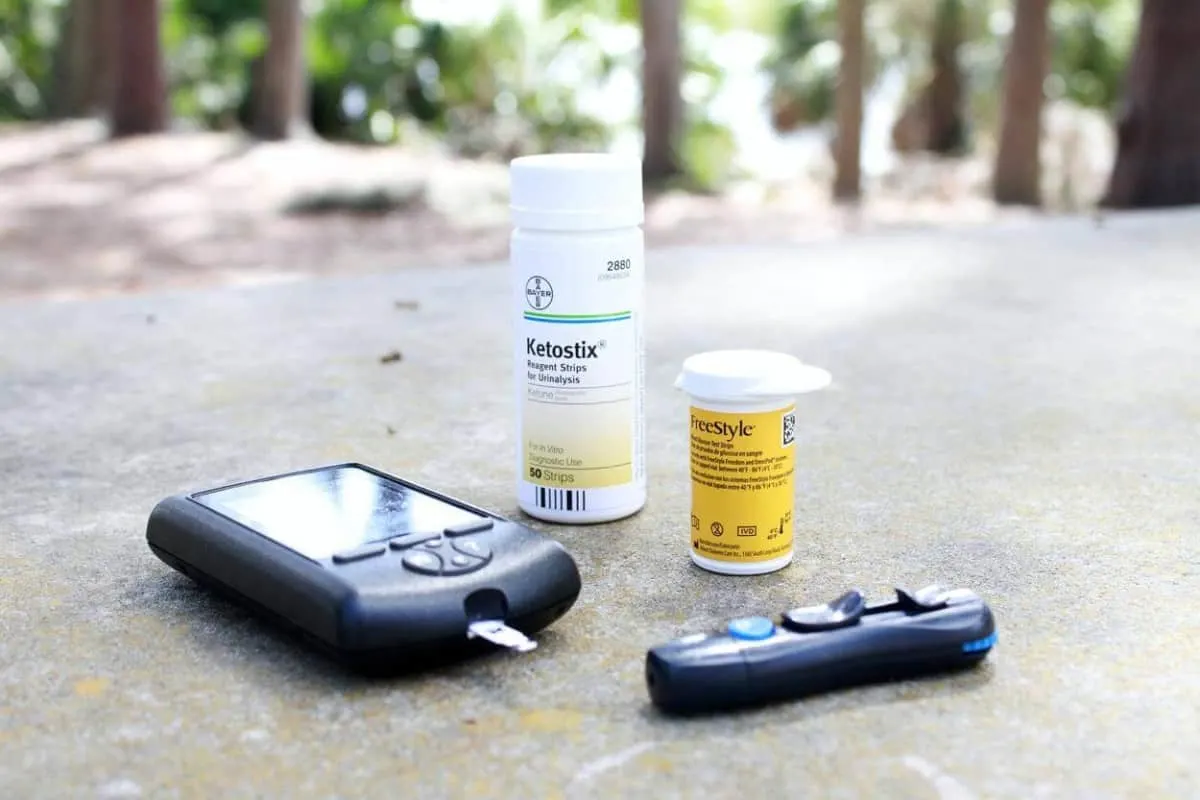
Diabetes is a chronic disease, which means a it’s long lasting health condition. It affects how the body uses blood sugar (glucose), which plays a vital role in energy production and brain fuel.
There are three different types of diabetes and these are:
- Type 1 Diabetes. The precursor of the next type and whose cause remains unknown. However, experts have cited a few signals which may increase the risk of developing Type 1 Diabetes and these are: genetics, environmental factors, autoimmune diseases.
- Type 2 Diabetes. This where your cells become resistant to insulin, and your pancreas is unable to make enough insulin to combat this resistance. Factors that leads to Type 2 Diabetes are: genetics, overweight, age, high blood pressure, and abnormal cholesterol and triglyceride levels,
- Gestational Diabetes. This type of diabetes occurs mostly during pregnancy. factors that may lead to this type of diabetes are: age, family history, and weight.
In 2019, the World Health Organization (WHO) recorded a death toll of 1.5 million, and all are directly caused by diabetes.
Diabetes can be controlled and prevented. However, if the disease has already caught you, know that there are treatments and several disease management.
Studies show that the average blood sugar level only ranges between 70 to 99mg/dL. A blood sugar level of 100 to 125mg/dL classifies you as a prediabetic or borderline diabetic. Exceeding these values falls on you as a diabetic person.
Can Diabetics Drink Energy Drinks?
To give light to the question, yes, diabetics can drink energy drinks, but not regularly as it may increase your blood sugar level. Drinking it occasionally would be okay, but only limited to one energy drink, and it has to be low in both sugars and calories.
Diabetics have sugar and caloric restrictions. So, if you are diabetic, you are not allowed to consume beverages that are sugary and with high-calorie content.
Consuming more than the recommended value of calories can cause a sudden spike in blood sugar and blood pressure levels.
In addition, you must choose an energy drinks that are sugar-free, minimal or zero-calorie content, along with minimal caffeine content.
Drinking an energy drink that is high in caffeine, and exceeding the safe threshold dose recommended by the FDA, will most likely increase your chance of developing Type 2 diabetes.
Can Diabetics Drink Red Bull?
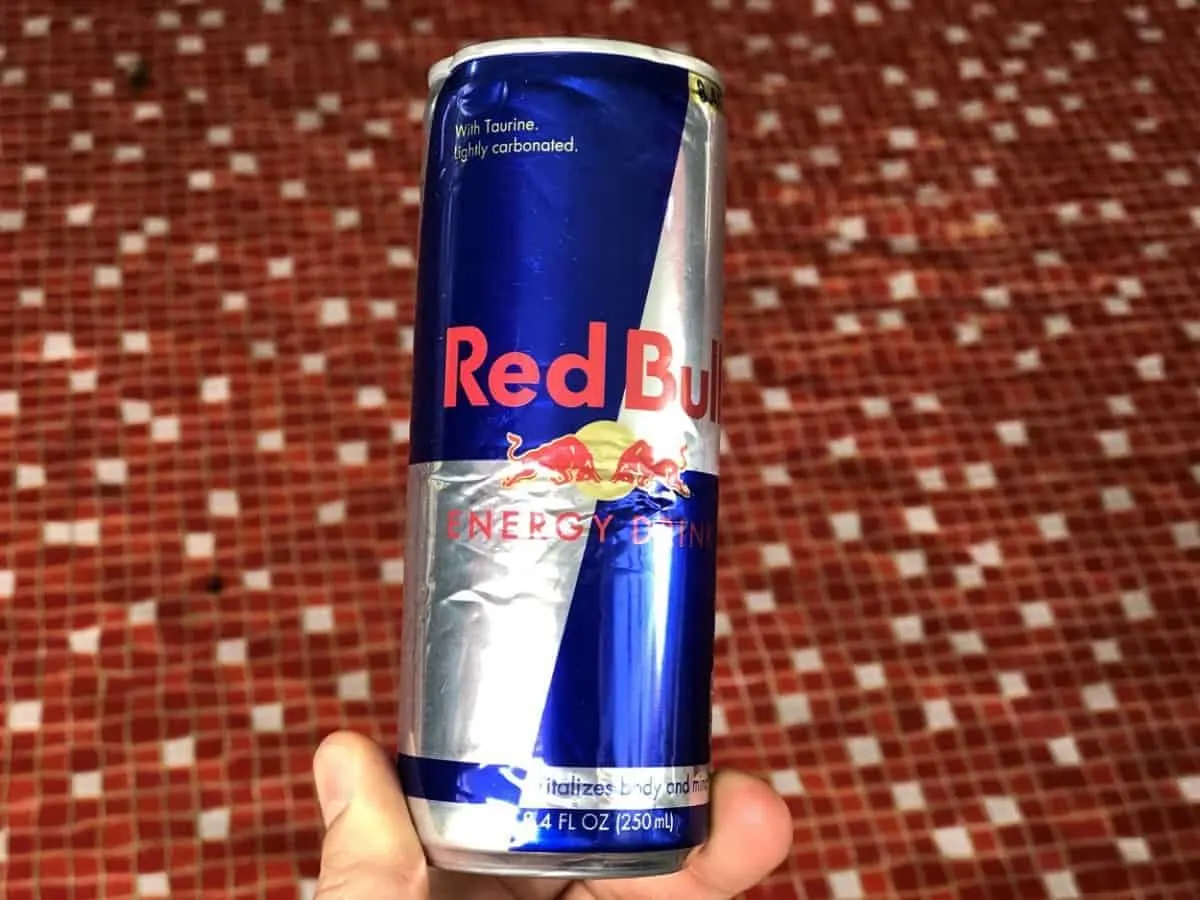
Red Bull is a popular energy drink, however it’s high in both calories and sugar for a drink of it’s size, so the regular version of Red Bull should generally be avoided by diabetics.
A regular 8.4 fl.oz of Red Bull will give you 110 calories (27g of sugar) and 80mg of caffeine. 110 calories is already a large amount given its small size.
Drinking Red Bull in large doses may be life-threatening. Reports have shown that consuming too many energy drinks with high calorie and caffeine content may lead to heart attack and worse, death.
As mentioned, diabetics have restrictions when it comes to food and drinks. Red Bull offers little nutritional value for far too much sugary danger, so I would recommend staying away from the regular version of Red Bull period.
Furthermore, if you are diabetic with one or more comorbidities such as heart problems, caffeine intolerance, or if you are pregnant then it is best to avoid Red Bull as well.
How Can Diabetics Boost Their Energy?
When you are diagnosed with diabetes, there is a high possibility of fatigue from time to time or periods where you feel so tired, stressed, and lethargic.
But there are ways on how to boost your energy, such as:
- Getting enough sleep: Getting enough sleep keep your blood sugar level under control, and prevents the effects of sleep deprivation from hitting you day after day.
- Drinking plenty of water: It’s important to stay hydrated all the time in order for your cells to function well.
- Take medications on time. Skipping your medication leads to a spike in blood sugar.
- Do not over-consume drinks that are high in sugar, calories, and caffeine.
- Eat foods that are high in fat, fiber, and protein.
- Don’t skip meals.
Sugar in Energy Drinks
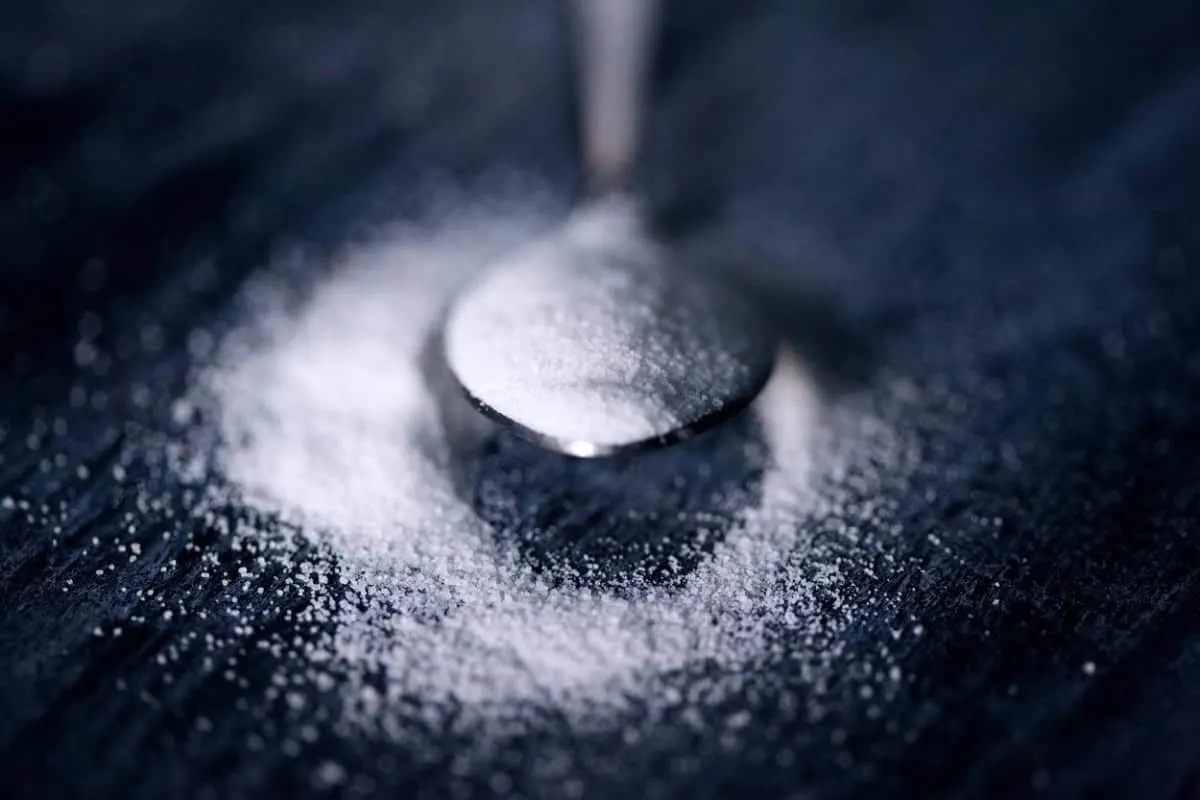
Not all energy drinks are sugar-free. Some have a considerable amount of sugar in them.
As a diabetic person, focus on your normal values. You have to know your limits before digging in.
Research has said that a healthy individual’s regular added sugar intake should not exceed 36g for men and 25g for women. And this value breaks down to 100-150 calories per day.
Can a person with diabetes still have sugar? Yes, diabetic can still eat and drink some food and beverage that contains sugar; however, it should be limited to a lower amount and should be a part of their diet.
However, take note that there are two types of sugar: added sugar and natural sugar.
The American Heart Association (AHA) has recommended four grams or around one teaspoon of sugar for a diabetic individual. One slice of bread can even reach that maximum limit.
Added Sugar
If you happen to have diabetes, it’s pretty essential to avoid added sugar. Added sugar is the main ingredient used chiefly in candies and other processed foods.
The most common added sugar is sucrose and fructose.
Added sugar does not give you any nutrients and vitamins, and while occasionally having it as a diabetic isn’t going to be life-threatening, it’s still best to moderate your overall sugar intake just in case.
Side Effects of Too Much Sugar
A diabetic individual should strictly monitor their diet and sugar intake continuously. All sugar intake must be cut, including those classified as healthy sugar like honey and cane juice, among others. Sugar is sugar anyway.
Once they consume too much sugar, this may lead to kidney damage. Remember that your kidney is a vital organ that filters your blood.
Sugar is okay for diabetic individuals but at a minimal amount. We don’t want to come into a life-threatening situation later on.
If you have diabetes, it is important to stay low and within the recommended sugar consumption daily.
Can Artificial Sweeteners Help?
For diabetic individuals, experts do not recommend artificial sweeteners as a substitute for any form of sugar. Again, this may be artificial, but again sugar is sugar. So, taking artificial sweeteners may leave you wanting more sugar.
And this may be pretty hard for you to control your weight, diet, and blood sugar level.
Does Celsius burn body fat?
Unfortunately, the caffeine in energy drinks does not work to immediately reduce fat stores in the body. The Celsius energy drink, in particular, is not a quick fix for losing weight. Instead, it’s a sugar-free thermogenic energy drink with a proprietary combination of chemicals shown to promote metabolic rate increase and calorie expenditure.
However, there are many who maintain that the drink’s effects assist them maintain concentration, mental clarity, and physical vitality. In this way, they were able to go about their daily lives and professional responsibilities with enthusiasm and determination.
Can you lose weight by drinking Monster?
It’s a common misconception that skipping meals and replacing them with energy drinks would help you reach your calorie deficit faster, but the truth is that these beverages are nutritionally empty and contain a lot of sugar. Inadvertently gaining weight from drinking two or more energy drinks everyday is possible.
Furthermore, research has linked regular energy drink usage to increased belly fat, one of the body’s most prone storage areas for excess fat. If you’re curious about the cause, it’s because the fructose in energy drinks has been linked to increased levels of abdominal fat.
Is caffeine an appetite suppressant?
Caffeine is a mild psychostimulant that, contrary to some accounts, seems to have the opposite effect on hunger.
Caffeinated coffee, especially when consumed between half an hour and four hours before a meal, may have a significant impact on hunger levels. Caffeine included in coffee reduces your body’s ability to use glucose for short-term energy needs.
How Does Caffeine Affect Diabetics?

While the effects of caffeine are well-known, diabetics may react to caffeine differently, to the relationship between caffeine and insulin in the body.
According to this study, caffeine may impair glucose metabolism in individuals with Type 2 Diabetes, thereby decreasing the insulin sensitivity of a diabetic individual which may aggravate symptoms of the disease.
If you have type 2 diabetes, your body already doesn’t use insulin well. After meals, your blood sugar rises higher than normal. Caffeine may make it tougher to bring it down to a healthy point. This may lead to too-high blood sugar levels. Over time, this may raise your chance of diabetes complications, like nerve damage or heart disease.
WebMD: Diabetes and Caffeine
While the FDA generally recommends a daily max caffeine intake of 400mg, as a diabetic you might want to significantly lower the amount of caffeine you partake in, which means most highly-caffeinated energy drinks (300mg and above), are off the table.
Best Energy Drinks for Diabetics
When choosing an energy drink, you should consider the following points;
- Added sugar
- Vitamins
- Health-boosting energy drinks
- Caffeine
Here are the following recommended energy drinks.
All of these drinks contain zero sugar, zero to minimal calories, and caffeine content that is well within FDA standards, although your mileage might vary regarding your caffeine tolerance and metabolism as to how it might affect you.
| ENERGY DRINKS | Calories | Sugar Content | Caffeine Content |
| Red Bull Sugar-Free (8.4 fl.oz) | 5 calories | 0g | 80mg |
| CELSIUS (12 fl.oz) | 10 calories | 0g | 200mg |
| G Fuel (7g serving) | 10 calorie | 0g | 150mg |
Red Bull Sugar-Free
While it might be best to stay away from regular Red Bull, Sugar-Free Red Bull is one of the better energy drinks you can partake in if you happen to be diabetic.
Each 8.4 fl.oz can of Sugar-Free Red Bull has 5 calories, 0g of sugar and 80mg of caffeine, making a lightweight, low-caffeine package to give you a quick boost whenever you have one.
That being said, Sugar-Free Red Bull does contain Aspartame, which may impair blood glucose tolerances in individuals with Type II Diabetes.
As such, only have the drink when you’re sure you haven’t consumed a high-carb meal, and be sure to watch your overall calorie intake for the day as well.
CELSIUS
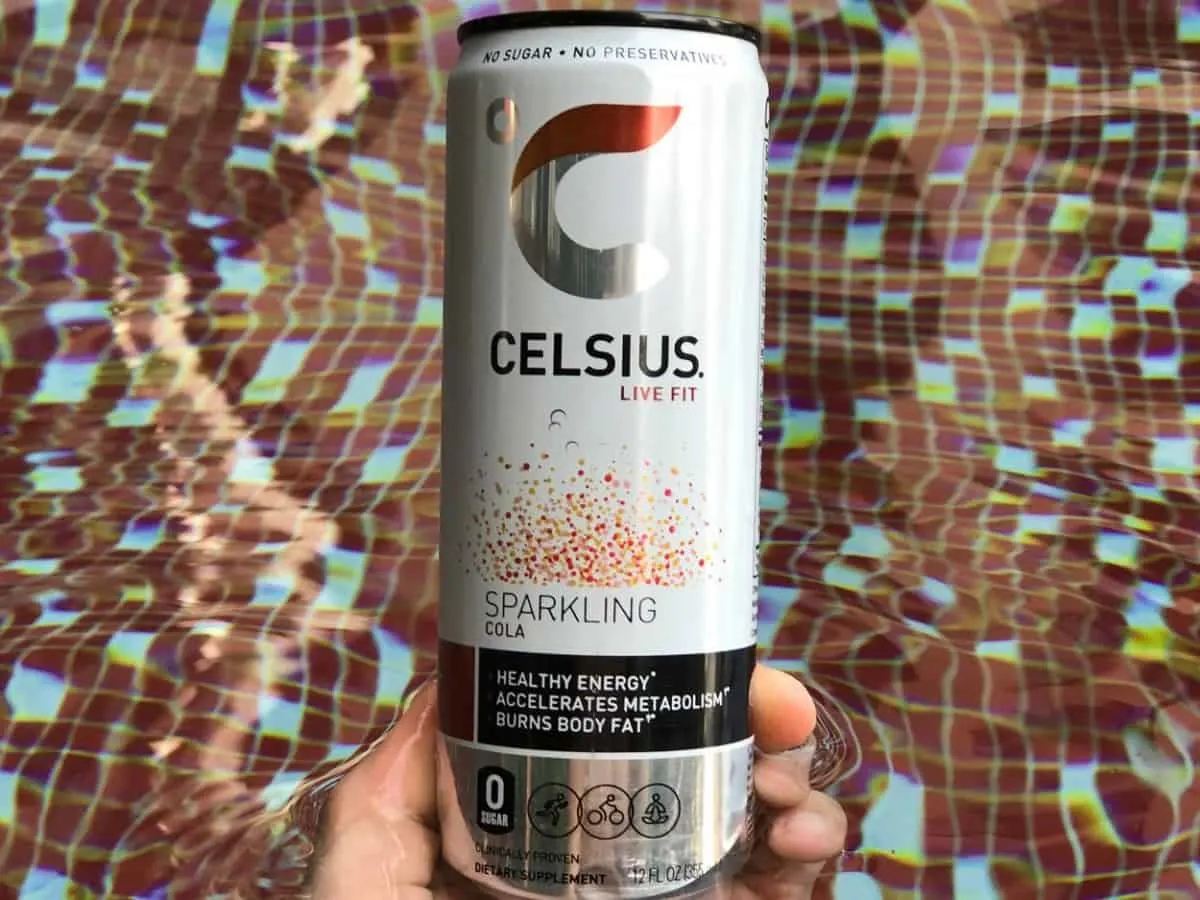
If you’re looking for clean energy, CELSIUS is definitely one of the better options you can find on the market.
Each 12 fl.oz can of CELSIUS has 10 calories, no added sugar, and 200mg of caffeine, making it a far more potent option than anything else on the list.
CELSIUS also provides a more soda-like finish, and is definitely a far cry from the syrupy energy drinks that are often on the shelves.
Other than that, CELSIUS is also both vegan and keto-friendly, making it an excellent choice not just for diabetics, but health enthusiasts, as well, so long as you can tolerate its higher than average caffeine content.
G Fuel
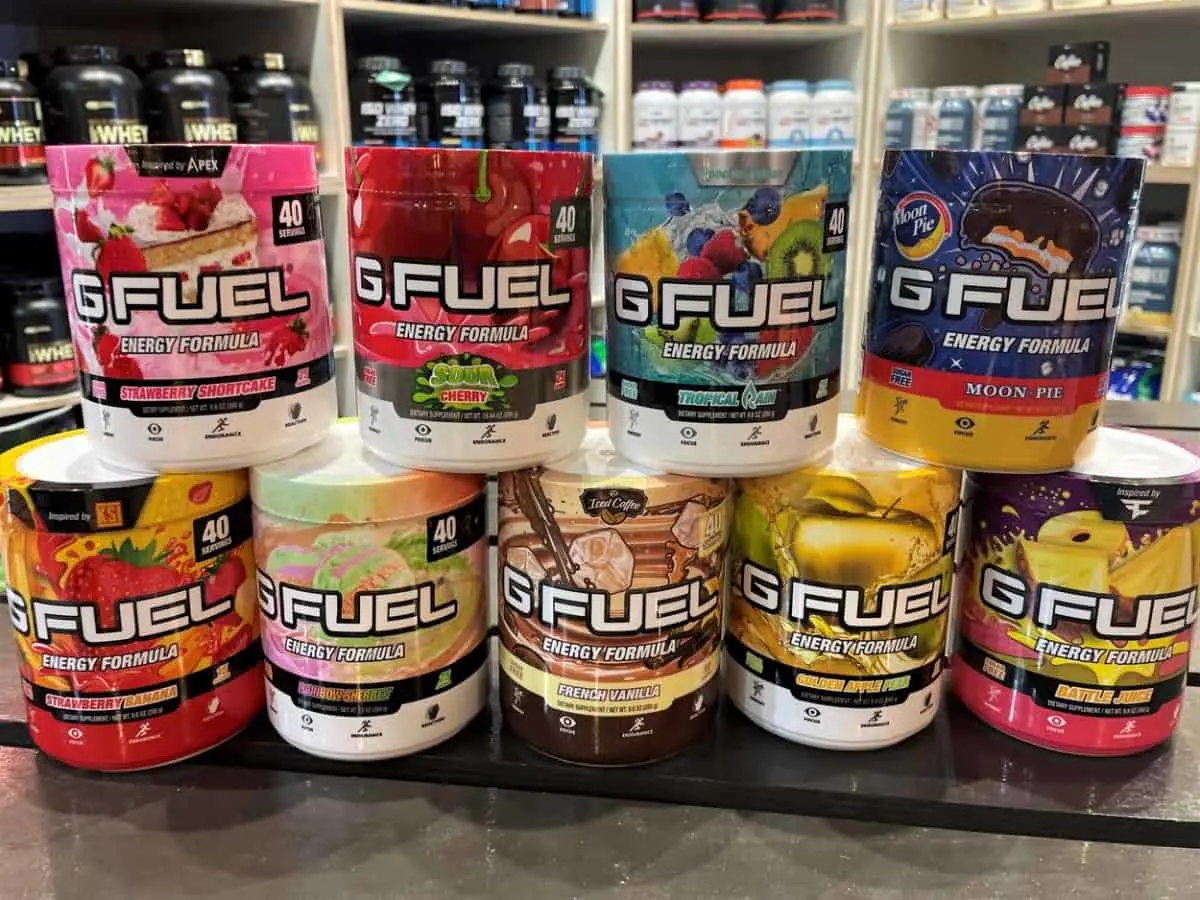
If you crave flexibility and tailoring your energy drinks to your specifications, then you certainly can’t go wrong with a powdered energy drink such as G Fuel.
Which each 7g serving has 10 calories, no added sugar and 150mg of caffeine, G Fuel’s powdered nature does mean you can tailor each serving to your own taste, which means halving the serving size to something that won’t give your body too much hassle with.
As such, G Fuel is great if you want some amount of caffeination, but not the inflexibility of having to drink an entire can of something to get your fix.
That being said, do remember to partake any energy drink in moderation; even if it doesn’t seem like a lot, multiple servings of G Fuel will add up and may lead to complications later on.
For more information on G Fuel and my personal thoughts on it, do check out my G Fuel Powder Review article, for all you need to know about the drink.
Final Thoughts
All-in-all, if you happen to be diabetic, standard, sugary energy drinks are definitely a detriment to your health, and you should definitely keep your caffeine and sugar intake in-check if you do plan on enjoying an energy drink.
Diabetes and energy drinks don’t go hand-in-hand, as most energy drinks are often sugar-filled and overly caffeinated, which is a detriment to even healthy individuals, even if taken in moderation.
As such, it might be best to stick with water for your hydration needs, and if you do feel like a light buzz, some light coffee and tea can give your body a quick boost to get you through.
But if you are clamoring for an energy drink, there are plenty of brands out there that can cater to someone with diabetes, you just need to know where to find them.
At the end of the day, it’s really up to you to decide what to put in your body, and if there’s ever a point you’re not too sure, always consult a health specialist before adding any specific brand into your diet.
